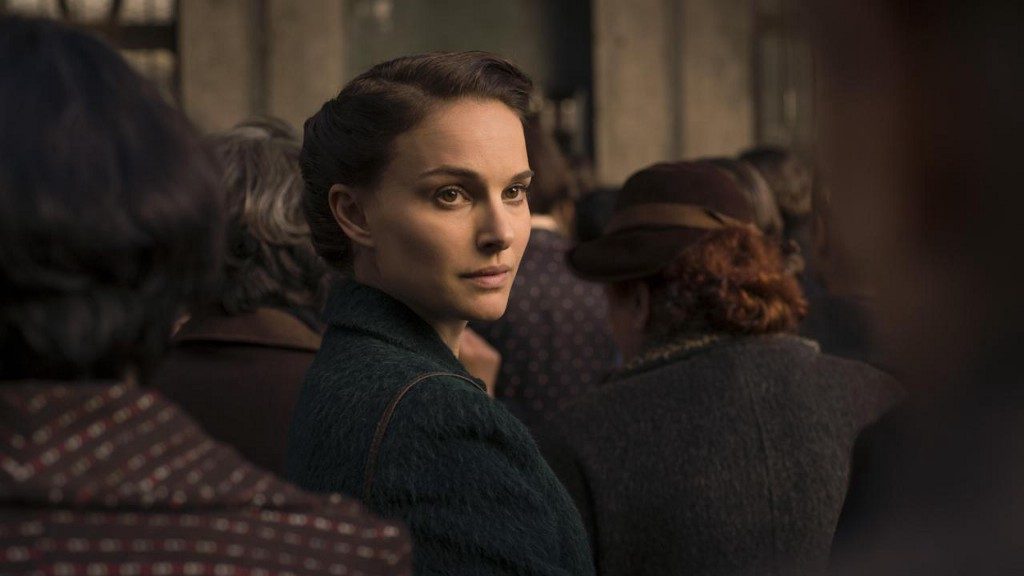“Black Swan” star Natalie Portman criticized the lazy tropes Hollywood screenwriters use to define female characters during a candid interview at a TIFF fundraising gala last week. The Oscar-winning actress, in town to promote her directorial debut “A Tale of Love and Darkness,” reflected on her 23-year career in the movie industry in a revealing interview with TIFF artistic director Cameron Bailey.
Portman looked back fondly on her experiences in the early ’90s working as a child opposite Jean Reno in her breakout role in “Léon: The Professional,” and as a teenage love interest to Timothy Hutton in “Beautiful Girls.” But she admitted that, looking back on the films now, she was troubled by the roles she played as a young female muse servicing the fantasies of much older men.
“It’s a trope as old as cinema,” she sighed, “to have a very young girl disarm a much older man… and it’s not something I think is a particularly good trend. I think it’s just screenwriters writing this fantasy of a young, nubile girl who’s also an intellectual equal.” Portman added that she found the ideal of the “Manic Pixie Dream Girl” — a trope she personified in Zach Braff’s “Garden State” — to be equally “troubling,” but defended her choice in taking the role. “I never looked at it that way when I read the script,” she explained. “It was a character who was wacky and interesting… but it’s a good thing to recognize now, and good that people are thinking about it.”
Elsewhere during the talk, which ran the gamut of her film career from romantic comedies such as “No Strings Attached” to dramas including “Closer,” the 34-year-old revealed that her experiences with bad directors had given her the confidence she needed to make her own directorial debut. “I had some funny acting experiences — funny meaning not that great — after ‘Black Swan,’” she reflected. “After working with someone who’s sub-par, it at least gave me confidence. I might not be Darren [Aronofsky] or Mike [Nichols], but I can be at least as good as that person.”
Talking about her Amos Oz adaptation “A Tale of Love and Darkness,” which she directs, wrote and stars in, Portman said that she drew confidence from filming in Israel, where being a female director is a more common profession than in Hollywood. “The new crop of film directors [there] actually skews more female than male, and in general women in positions of power … are more common there.”
Portman referred to the dearth of female filmmakers in Hollywood as “a big deal” and said she’s “glad it’s becoming more a part of the conversation.”
The freewheeling and loose conversation also saw a special appearance from “Black Swan” director Darren Aronofsky, who joined Portman and Bailey onstage midway through the evening. “He’s the worst,” she joked of her experience of working with the director. The main lesson Aronofsky taught her, and which had tried to implement in her own film, was of the need for directors to tailor their approaches with individual actors. “For each person it’s different,” Portman said. “Some people need encouragement, some need you to be rough with them… he was the one who showed me that.”
For his part, Aronofsky praised Portman as being “so smart and driven that she can do anything she wants,” adding that she should consider running for president of the U.S. Not missing beat, Portman pointed out that, having been born in Israel, she is ineligible to run. “Otherwise I would,” she grinned.







